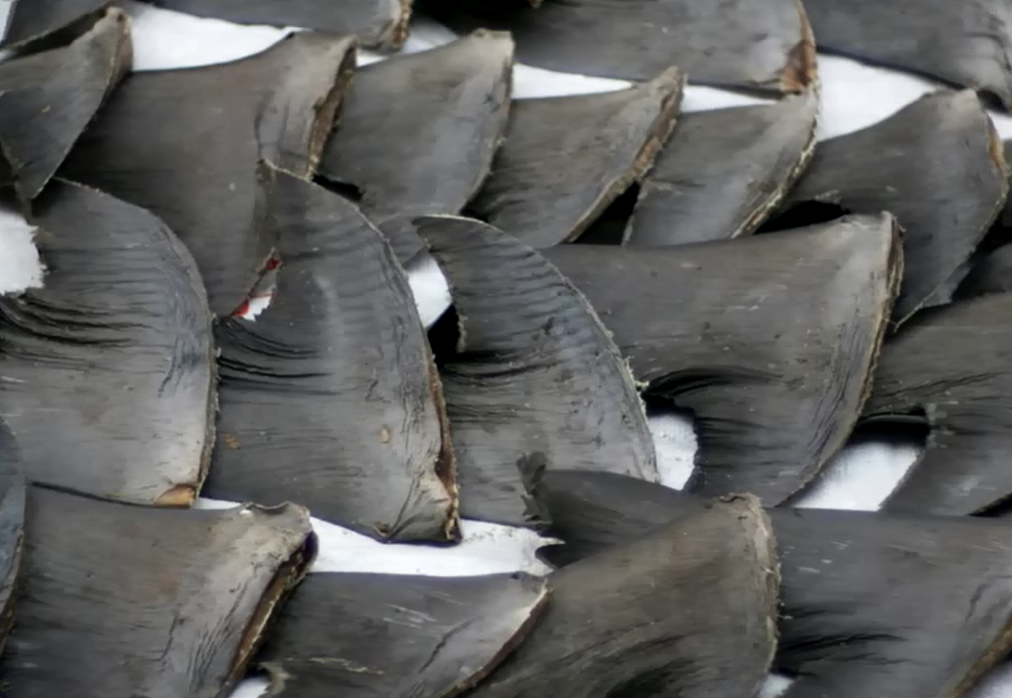Costa Rica News – Although the law has been in place for a couple of years, no one was gotten even a real slap on the wrist for shark finning in Costa Rica waters….until now.
 The Tribunal Penal de Juicio de Puntarenas (Puntarenas Criminal Court) on Monday sentenced a Taiwanese businesswoman to six months prison, finding her responsible for ordering the unloading of 652 shark fins, destined for sale abroad.
The Tribunal Penal de Juicio de Puntarenas (Puntarenas Criminal Court) on Monday sentenced a Taiwanese businesswoman to six months prison, finding her responsible for ordering the unloading of 652 shark fins, destined for sale abroad.
Shark finning is illegal in Costa Rica under Article 139 of the Fisheries and Aquaculture Law (Ley de Pesca y Acuicultura) and is sanctioned with a prison term of six months to two years, for anyone who allows, orders or authorizes the unloading of shark fins.
The businesswoman was identified as Hue Ju Tseng Chang, known as Kathy Tseng.
According to the court press release, the woman received the minimum sentence, the trial judges taking into account a clean criminal record.
Tseng was also fined ¢3 million colones (US$5,300 dollars).
Tseng’s case began in October 2011, when her fishing Belize-flagged boat, the Wan Jian Men 88, was found at the El Carmen de Puntarenas pier carrying 151 sharks, their fins chopped off.
In the first trial, which took place in April 2014, Tseng was acquitted. However, the Tribunal de Apelación de Sentencia de San Ramón (San Ramon appeals court) annulled the ruling, finding that it was very confusing and ordered a new trial.
Marco Quesada Alpízar, director of the International Conservation (CI) program in Costa Rica, said: “We are happy that the country sends a clear signal that its priority is to protect the country’s sustainability.“
For her part, Gladys Martínez, lawyer for the Asociación Interamericana para la Defensa del Ambiente (AIDA) – Inter-American Association for the Defense of the Environment, said: “This is a historic sentence, since it is the first time that there has been a criminal conviction for shark finning. We applaud the Attorney General’s efforts to enforce national laws. And the international commitments of Costa Rica. We hope it will be a precedent that will help prevent this practice from repeating itself. “
Heiner Méndez, head of legal counsel for the Instituto Costaricense de Pesca y Acuicultura (Incopesca) – Costa Rican Fisheries and Aquaculture Institute, also affirmed that this is the first time that anyone who ordered the discharge of shark fins has been convicted.
Méndez recalled that there is an earlier case, in May 2012, but that at that time a conciliation was reached with the owner of the boat Hung Chi Fu XII, who paid ¢62 million colones (US$110,000 dollars). In that case, on March 2, 2011 the boat was found to have unloaded shark fins, also at the El Carmen in Puntarenas, 18,000 kilos of shark body (called vastago in Spanish) and 2,000 kilos of shark fin.
Shark finning (aleteo in Spanish) involves slicing off a shark’s fins before dropping the live fish back in the sea. Unable to swim effectively, the wounded creature faces a grim future: suffocating, starving or being eaten.
Shark fins, often used in soups served on special occasions, demand high prices in Asia.
From QCostaRica

